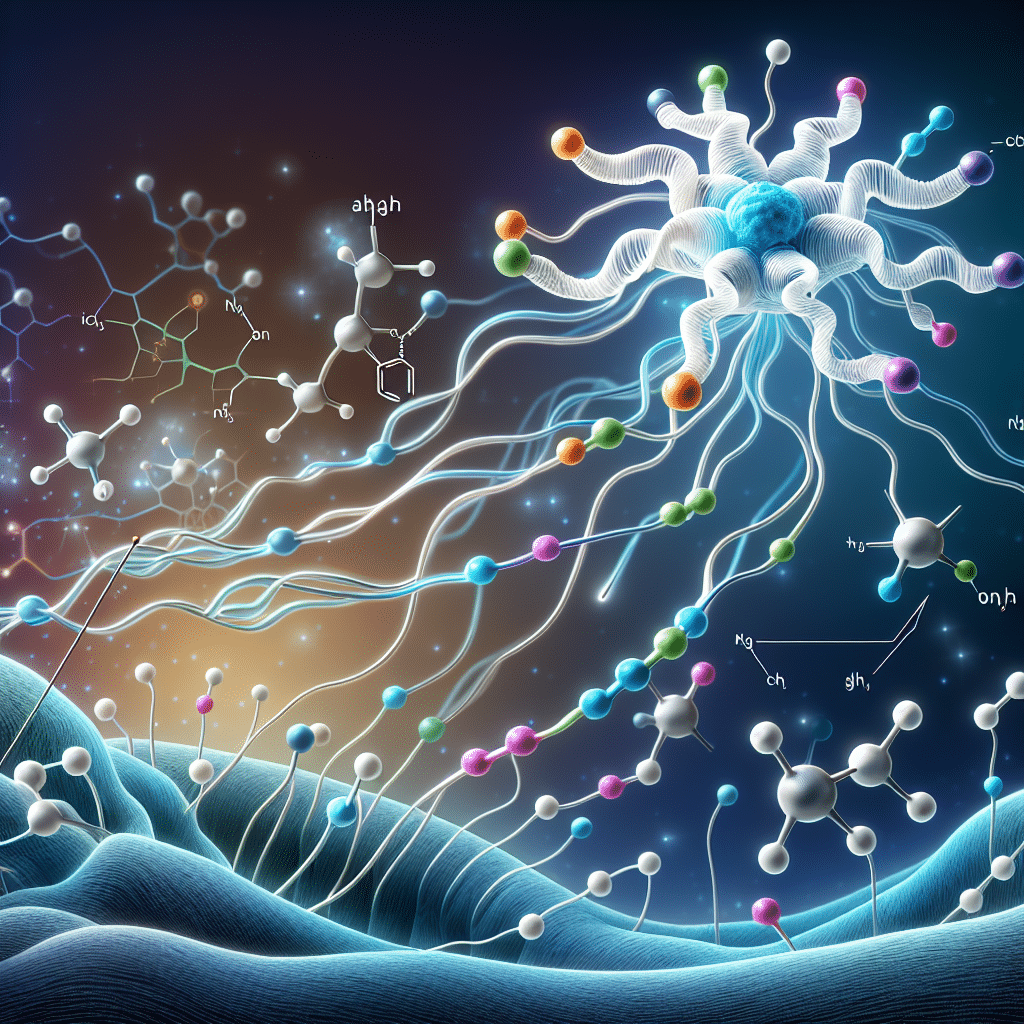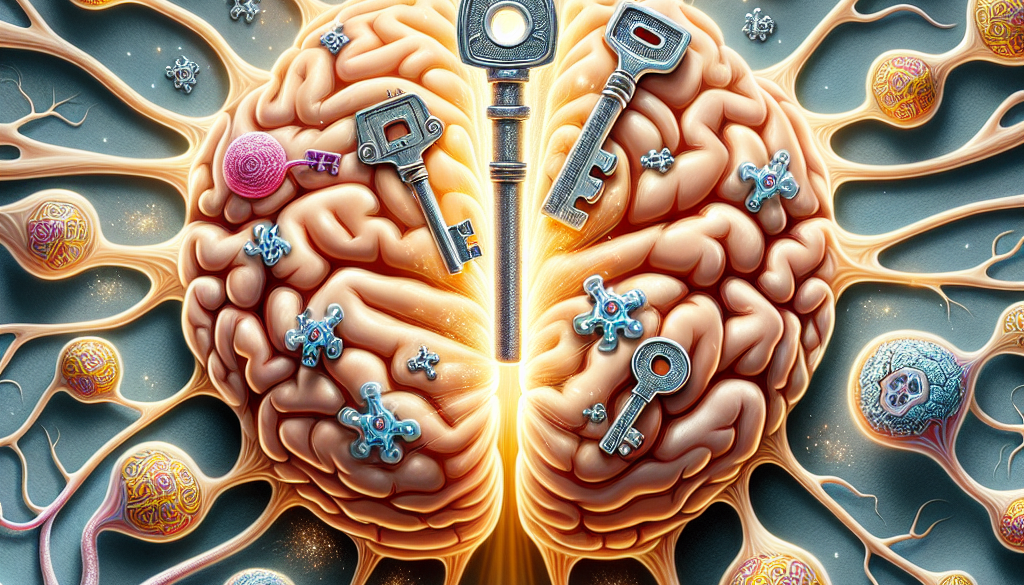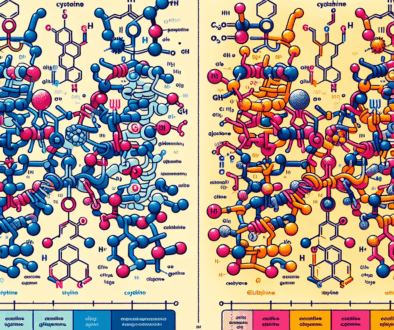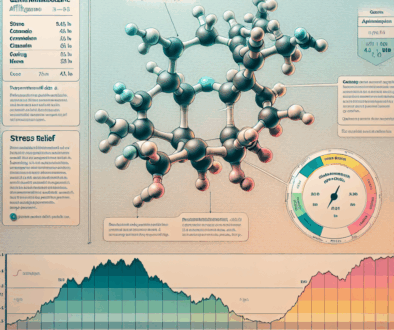Gamma Aminobutyric Acid Agonist Role
-
Table of Contents
- Gamma Aminobutyric Acid Agonists: Exploring Their Crucial Role in Neuroscience
- Understanding GABA and Its Mechanisms
- The Significance of GABA Agonists
- Types of GABA Agonists
- Therapeutic Applications of GABA Agonists
- Case Studies and Research
- Side Effects and Considerations
- Future Directions
- Conclusion
- Discover High-Quality Proteins with ETprotein
Gamma Aminobutyric Acid Agonists: Exploring Their Crucial Role in Neuroscience

GABA, or Gamma Aminobutyric Acid, is a neurotransmitter that plays a pivotal role in regulating neuronal excitability throughout the nervous system. In humans, GABA is also directly responsible for the regulation of muscle tone. This article delves into the role of GABA agonists, substances that can mimic the action of GABA, thereby aiding in the treatment of various neurological and psychiatric disorders.
Understanding GABA and Its Mechanisms
GABA is the chief inhibitory neurotransmitter in the mammalian central nervous system. It works by binding to GABA receptors in the brain, which are ionotropic GABAA and metabotropic GABAB receptors. When GABA binds to these receptors, it typically results in a reduction of neuronal excitability.
The Significance of GABA Agonists
GABA agonists are compounds that bind to GABA receptors and enhance the effects of GABA. They are crucial in the treatment of a variety of conditions, including anxiety disorders, epilepsy, and insomnia. By mimicking GABA, these agonists can help restore balance to an overactive nervous system.
Types of GABA Agonists
- Direct Agonists: These bind to the same site as GABA on the receptor, directly activating it.
- Allosteric Modulators: These bind to different sites on the GABA receptor and enhance the binding and effect of GABA.
- Reuptake Inhibitors: These prevent the reuptake of GABA from the synaptic cleft, increasing its availability.
- Enzyme Inhibitors: These inhibit the enzymes responsible for the breakdown of GABA, thus increasing its levels in the brain.
Therapeutic Applications of GABA Agonists
GABA agonists have a wide range of therapeutic applications. Here are some of the most significant:
- Anxiety Disorders: Benzodiazepines, a class of GABAA receptor agonists, are commonly prescribed for the treatment of anxiety.
- Epilepsy: GABA agonists can help control seizures by reducing neuronal excitability.
- Insomnia: Certain GABA agonists are effective in treating sleep disorders due to their sedative effects.
- Neuropathic Pain: GABAB receptor agonists like gabapentin are used to treat neuropathic pain.
- Substance Abuse: GABA agonists have been explored for the treatment of addiction.
Case Studies and Research
Several studies have highlighted the effectiveness of GABA agonists in treating various conditions. For instance, research has shown that benzodiazepines can significantly reduce the symptoms of anxiety. Another study on gabapentin has demonstrated its efficacy in reducing neuropathic pain.
Side Effects and Considerations
While GABA agonists are beneficial, they can also have side effects, such as drowsiness, dizziness, and dependence. It is crucial for these medications to be prescribed and monitored by a healthcare professional.
Future Directions
Research continues to explore new GABA agonists and their potential therapeutic applications. The development of more selective agonists may lead to medications with fewer side effects and improved efficacy.
Conclusion
GABA agonists play a vital role in the treatment of various neurological and psychiatric disorders. Their ability to mimic the inhibitory effects of GABA makes them invaluable in restoring balance within the nervous system. As research advances, we can expect to see more targeted and effective GABA agonists with a broader range of therapeutic applications.
Discover High-Quality Proteins with ETprotein
If you’re looking for premium protein products, ETprotein offers an extensive range of organic bulk vegan proteins and L-(+)-Ergothioneine. Their products are ideal for various industries, including nutraceuticals, pharmaceuticals, and food and beverage. Contact ETprotein for high-quality protein solutions that meet your needs.
About ETprotein:
ETprotein, a reputable protein and L-(+)-Ergothioneine (EGT) Chinese factory manufacturer and supplier, is renowned for producing, stocking, exporting, and delivering the highest quality organic bulk vegan proteins and L-(+)-Ergothioneine. They include Organic rice protein, clear rice protein, pea protein, clear pea protein, watermelon seed protein, pumpkin seed protein, sunflower seed protein, mung bean protein, peanut protein, and L-(+)-Ergothioneine EGT Pharmaceutical grade, L-(+)-Ergothioneine EGT food grade, L-(+)-Ergothioneine EGT cosmetic grade, L-(+)-Ergothioneine EGT reference grade and L-(+)-Ergothioneine EGT standard. Their offerings, characterized by a neutral taste, non-GMO, allergen-free attributes, with L-(+)-Ergothioneine purity over 98%, 99%, cater to a diverse range of industries. They serve nutraceutical, pharmaceutical, cosmeceutical, veterinary, as well as food and beverage finished product distributors, traders, and manufacturers across Europe, USA, Canada, Australia, Thailand, Japan, Korea, Brazil, and Chile, among others.
ETprotein specialization includes exporting and delivering tailor-made protein powder and finished nutritional supplements. Their extensive product range covers sectors like Food and Beverage, Sports Nutrition, Weight Management, Dietary Supplements, Health and Wellness Products, and Infant Formula, ensuring comprehensive solutions to meet all your protein needs.
As a trusted company by leading global food and beverage brands and Fortune 500 companies, ETprotein reinforces China’s reputation in the global arena. For more information or to sample their products, please contact them and email sales(at)ETprotein.com today.












